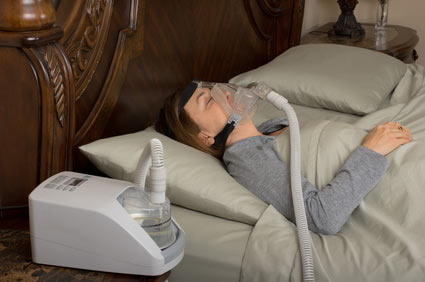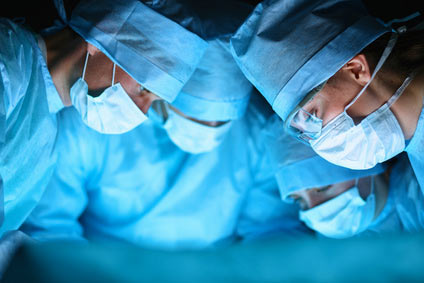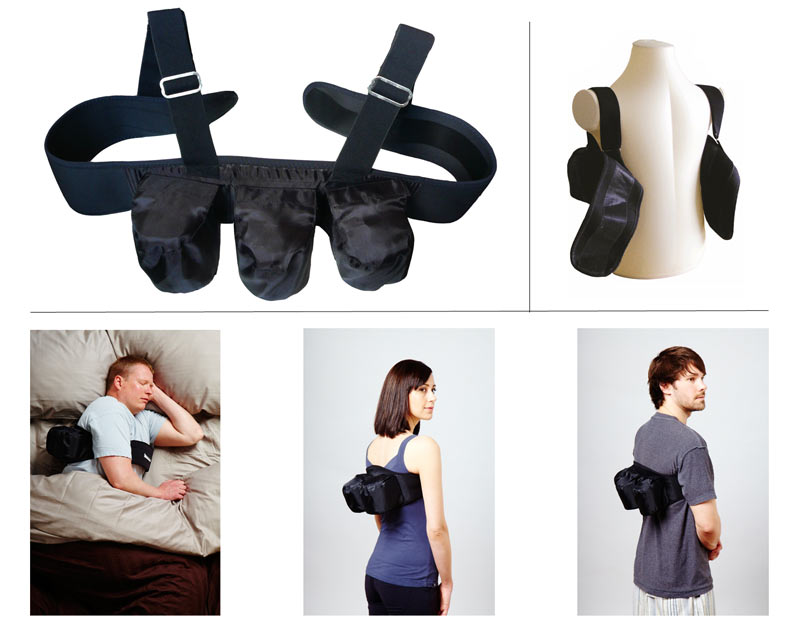The Cure for Sleep Apnea
Benefits and Side Effects of Common Cures for OSA

The best cure for sleep apnea depends on your risk factors and causes for apnea breathing disorder.
There are so many variations of sleep apnea treatments that it might be difficult for you to choose.
Which treatment has the best positive effects on your health and quality of life?
And that's not all! The best sleep apnea treatment should also reduce your medical problems, such as heart disease, diabetes, high blood pressure, and other medical conditions.
Now you'll ask if there is any treatment that cures all the problems?
Every doctor will tell you about effective cures for sleep apnea, and if that cure doesn't work, there is always another one.
The bad news is that the best-known effective treatments are very expensive, and many patients with sleep apnea have intolerance to these treatments, especially to CPAP therapy.
Continuous Positive Airway Pressure - CPAP
The CPAP machine is able to provide a continuous flow of air pressure into the back of the throat, through the mouth. The generated pressure then effectively splints the upper airway open and allows for a clear breathing.
Learn more about CPAP machine and it's therapy:
Positive effects:
- improve sleep quality (if you tolerate the CPAP machine)
- decrease daytime sleepiness
- decrease high blood pressure
- improves heart health
- the most common treatment for sleep apnea
For more info about positive effects of CPAP, see CPAP benefits.
Side Effects:
- expensive
- uncomfortable
- may cause irritation or drying of the nasal pasages
- congestion and/or reflex rhinorrhea
- epistaxis or nosebleed
- dry throat and mouth
- nose sores from wearing the device too tight
- irritated eyes
- pressure in the ears caused by air in Eustachian tubes (at higher pressures)
For additional info about CPAP issues, see CPAP Side Effects.
Surgery for Sleep Apnea

Surgery may be an effective cure for sleep apnea and snoring, but if only performed competently. It's very important for the surgeon to identify correctly the tissues that contribute to upper airway obstruction, which varies between different patients.
The surgeon will remove the excess tissues from your throat or your nose. An alternative solution is to shrink or stiffen the excess tissues.
Surgery for sleep apnea is indicated when CPAP therapies are unsuccessful, or intolerable.
Positive effects:
- very effective in malformative or inflammatory diseases that cause sleep apnea
- positive results in treating sleep apnea in children
- a radical way to lose weigh
Side effects:
- expensive
- it can't be guaranteed
- is not likely to be as effective as CPAP
- some types of surgeries, like tracheotomy, are poorly tolerated by many patients
- in some cases, like UPPP, may decrease the CPAP effectiveness
- pain
- muscle or nerve damage
- infection
- loss of blood
Dental Devices for Sleep Apnea

These oral devices have been designed with the objective of holding the tongue, the lower jaw, or both in a forward position during sleep, hoping to make the upper airway less likely to collapse.
Positive effects:
- work best for people whose obstructive apnea originates in the throat from the position of their tongue or lower jaw in relation to their airway.
Side effects:
- very expensive considering a moderate rate of success
- fifty percent rate of success
- the effectiveness tends to decrease over a period of a year
- uncomfortable to wear
Positional Therapy for Sleep Apnea

This treatment is very effective for patients with mild and moderate apnea.
People with obstructive sleep apnea have more severe episodes when they sleep on their back.
Sleeping on your back can cause gravity to pull your jaw and tongue back, narrowing the airways, causing hypopnea and apnea events, and creating tissue vibrations or snoring.
Therefore, positional therapy is the first choice for many patients with snoring or mild to moderate sleep apnea, mainly due to low costs and no side effects on health.
Positive effects:
- reasonable price
- you will experience a good night’s sleep immediately
- fully adjustable
- stop snoring
- effective for mild and moderate sleep apnea patients
- supplement to your CPAP or dental devices.
- if you are overweight, positional therapy and weight loss can have a positive improvement on your quality of life
- no danger to your health
Side effects:
- no improvement for severe sleep apnea
- is effective only if your main cause for sleep apnea is an obstruction of your airway.
- no improvement for central sleep apnea
How would you know if sleeping on your side will help you treat your snoring and sleep apnea?
Well, if you tend to stop snoring or breathe easier when sleeping on your side - you should ask your bed partner about this - positional therapy may work for you.
For more information about how to use side sleeping in your cure for sleep apnea, see positional therapy.
Home › What is Sleep Apnea › Best Cure for Sleep Apnea







